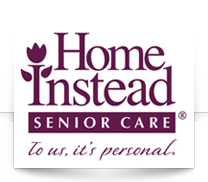40-70 Rule
The 40-70 Rule: 7 Tips To Help Boomer Children Communicate With Their Aging Parents
Many adult children are aging adults know how difficult it can be to talk with their parents about certain topics. Following, from Home Instead Senior Care and communication expert Jake Harwood, Ph.D., from the University of Arizona, are tips to help family caregivers communicate with their aging parents on sensitive subjects.
1. Get started. If you’re 40 or your parents are 70, it’s time to start observing and gathering information carefully and thoughtfully. Don’t reach a conclusion from a single observation and decide on the best solution until you have gathered information with an open mind and talked with your parents.
2. Talk it out. Approach your parents with a conversation. Discuss what you’ve observed and ask your parents what they think is going on. If your parents acknowledge the situation, ask what they think would be good solutions. If your parents don’t recognize a problem, use concrete example to support your case.
3. Sooner is best. Talk sooner rather than later when a crisis has occured. If you know your loved one has poor eyesight or has trouble driving at night, begin to address those issues before a problem arises.
4. Forget the baby talk. Remember you are talking to an adult, not a child. Patronizing speech or baby talk will put older adults on the defensive and convey a lack of respect for them. Put yourself in your parents’ shoes and think of how you would want to be addressed in the situation.
5. Maximize independence. Always try to move toward solutions that provide the maximum amount of independence for the older person. Look for answers that optimize strengths and compensate for problems. For instance, if your loved ones need help at home, look for tools that can help them maintain their strengths. Professional caregiving services, such as those offered by Home Instead Senior Care, provide assistance in a number of areas including meal preparation, light housekeeping or medication reminders. Or find friends who can help.
6. Be aware of the whole situation. If your dad dies and soon afterward your mom’s house seems to be in disarray, it’s probably not because she suddenly became ill. It’s much more likely to stem from a lack of social support and the loss of a life-long relationship. Make sure that your mom has friends and a social life.
7. Ask for help. Many of the issues of aging can be solved by providing parents with the support they need to continues to maintain their independence. Resources such as Home Instead Senior Care, Area Agencies on Aging and local senior centers can help provide those solutions.
The 40-70 Rule: An Introduction
This online guide is designed to help adult children and their aging parents deal with those sensitive life topics that often make conversations difficult. How do you talk with your mom and dad about driving, dating and independence? And when do you start?
Based on research and experience, the international caregiving company Home Instead Senior Care recommends that the earlier these conversations begin the better. The 40-70 means that if you are 40, or your parents are 70, it’s time to start talking – at least about certain senior topics.
This guide features a series of situations followed by possible responses for some of the most awkward senior subjects. Sooner is better, before a crisis occurs. But it’s never too late to start. These examples cover situations that can be addressed early, as well as those that have reached a crisis level.
The scenarios and responses were developed by Home Instead Senior Care, based on real-life experiences, and with input from communication expert and author Jake Harwood, Ph.D., from the University of Arizona.
Home Instead Senior Care research forms the foundation for this guide. The company interviewed 1,500 U.S. and Canadian adult children of aging parents, asking them about their relationships with their parents, and how they handle discussing sensitive topics with these older adults.
A startling piece of research revealed that nearly one-third of adults in the U.S. have a major communication obstacle with their parents that stems from continuation of the parent-child role. The fact that many of these families still operate according to a parent-child model rather than a peer-to-peer one makes these conversations particularly difficult.

